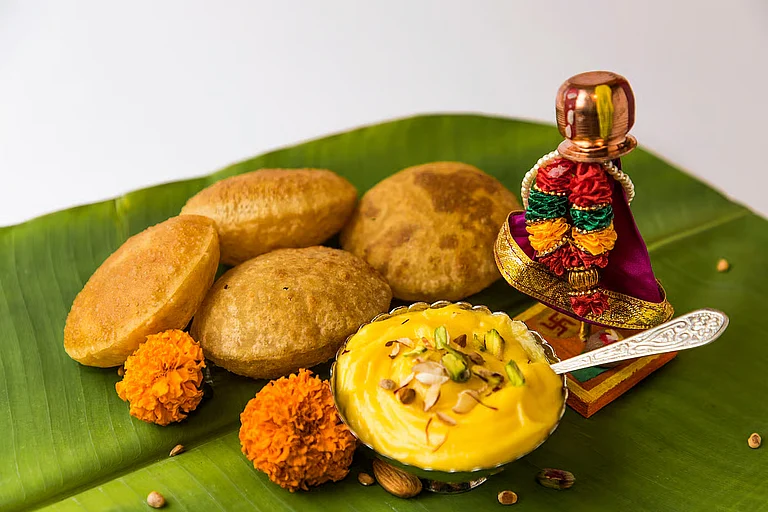The Indian press and publishers, by and large, never transgress the limits of decency. They respect the privacy of people in the limelight. Film journals may not maintain such standards, but even they do not pursue actors and actresses wherever they go at any time of the night. The stars are justifiably incensed over the gossip and the concocted news items which appear in print about them. Yet, our journalists or photographers have seldom chased them to their showers or swimming pools. I know of nobody who has gone underwater to take pictures of a celebrity bathing. But Jacqueline Onassis Kennedy's nude pictures appeared in responsible journals in the US and Britain.
The western media, particularly the tabloid press, has no qualms about peeping through keyholes. It justifies it in the name of freedom of the press. Fortunes are paid if a photographer captures a celebrity in a compromising pose. We may be prudish in such matters. But we will not print those pictures even if they are free. We do not cross the limits of decency. Some years ago, photos of the late Jagjivan Ram's son with a woman were distributed among newspapers and magazines. No mainline publication used them. No editor thought they made news. Maybe our laws of obscenity are stricter than those in the West. But even if there had been no law, the Indian press would behave the same way as it does today because of our abhorrence of indecency; something at the back of our mind stops us f rom trading in something unbecoming.
Comparisons are odious, but in contrast the Western media looks irresponsible. On the basis of 40 years in journalism, I can say that we follow an unwritten code of ethics while publishing stories and pictures about celebrities. We have a natural inhibition and are careful when printing anything about people in the glare of publicity. Partly, it is due to our culture and partly our innocence in the come-what-may-happen world. This may be the reason we are so concerned over the invasion from the sky. The fact that we can do nothing about it is no ground to accept it willingly. The question is not that of foreign ownership because the reaction to gibberish from local sources would be the same. The question is that of decency, or sensitivity that intrusion upon anybody's private life can hurt him deeply.
For the sake of Princess Diana's photo with Dodi Al-Fayed, the chasing photographers or journalists killed them. The two sped to escape them. Had the journalists and photographers not been chasing them, Diana and Al-Fayed would have driven normally and the car may not have crashed into the tunnel wall as it did.
I cannot envisage a similar scenario here. We may not be a developed country but we follow certain norms. Once in a while someone strays from the flock but there is so much criticism and pressure against him— whether a journalist or a photographer— that he rejoins the flock. Indeed, restraint comes to prevail. Personal lives are sacred to us. I recall discussing Sonia Gandhi with a European journalist. He said that if she had been in the West, as the young widow of a former premier, she'd have been a running story. She would have been pursued and harassed. How come there were no reports on her travels, her friends, her activities, her personal life, he asked. I told him the Indian press respected a person's privacy and saw that limits were not crossed. He appreciated our approach but found it naive. "This can happen only in India," he said.
Najma Heptullah, the deputy chairperson of the Rajya Sabha, is quite right in saying: "In India, we don't have that kind of hounding yet. The number of photographers, journalists, even TV channels have multiplied in India but the Indian press does respect personal privacy." Some of us may do a colour piece on Bihar chief minister Rabri Devi to find out what she cooks for her husband or even put questions on her beauty regimen. But nobody ever tries to probe whether she is happy in her marital life or not. Her private life is never written about.
After many years, people have begun whispering about the relationship between Nehru and Edwina Mountbatten. Both wrote to each other practically every day and New Delhi's diplomatic pouch between India and the UK was used. Still, the matter has remained a subject of conjecture. Never has it become an issue in the country, which accepts that certain things are not for public consumption. When I was India's high commissioner to the UK in 1990, I asked Lord Mountbatten's grandson to comment on the relationship. He said: "Theirs was spiritual love." The journalistic itch urged me to probe but decency stopped me from going further.
Paparazzo is a word used for an aggressive photographer or reporter who pursues celebrities wherever they go. The paparazzi's usual line of defence will be: "We are small players in the drama. The market is there. People buy the magazine. And the editors push it. There is a whole chain: owners, editors, readers . "
Such considerations are not before us. There are odd cases which I cannot defend. For example, Azharuddin has gone on record saying that his life was made miserable by some journalists and photographers who intruded upon his privacy before he married filmstar Sangeeta Bijlani. There were cases of public dis-approval when filmstar Mamta Kulkarni and a Delhi lawyer appeared topless on magazine covers. Popular horror can be judged from the furore it created. But they were never pursued to the extent that happens in the West.
That way we are different. We do our own thinking, profiting by the example of others but essentially trying to find a path for ourselves suited to our own conditions. For the West, there are no shades of grey, there is only black and white. That is not the approach of tolerance, of feeling that perhaps others might also have their side of the story. That is the reason we have escaped totalitarianism and fundamentalism. We are agitating for the right to know, and the government has promised a freedom of information to ensure transparency. But our right to information does not mean that we want to know everything about the private lives of politicians, ministers or other celebrities. Diana would have been safer in India.


















